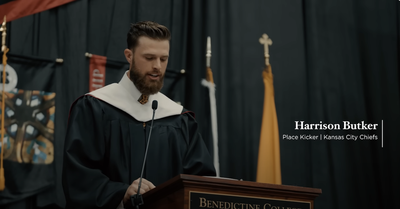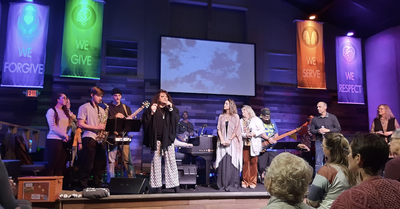It could be happening in the house next door. According to The Protection Project, more than 50,000 women are trafficked into the United States annually. Last year police in Atlanta found brothels in suburban apartment complexes.
The CIA Monograph, "International Trafficking in Women to the United States," reported that women have been trafficked to the United States "primarily for the sex industry (prostitution, stripping, peep shows and massage parlors), sweatshop labor, domestic servitude and agricultural work. Women have also been trafficked to provide maid services at motels and hotels, and peddle trinkets on subways and buses. The average age of the trafficking victim in the United States is roughly 20 years old."
A study released last month revealed that between 300,000 and 400,000 American children are victims of the sex trade each year. "We project one out of every 100 American children is involved in sexually exploitative activities," said the study's co-author Richard J. Estes.
Estes and Neil Alan Weiner of the University of Pennsylvania School of Social Work researched the growing problem of child pornography, street prostitution and trafficking of children for sexual purposes in North America.
While other studies have tracked the problem internationally, the extent of these activities in the United States was, until recently, unknown. "This is not a problem only in poor, distant, developing countries," said Estes. "It is a home-grown problem."
According to Lisa Thompson, liaison for the Salvation Army Sexual Trafficking Project, while some are starting to recognize that trafficking is happening in the United States, there hasn't been a concerted effort at developing treatment and shelters for survivors.
That's where the Salvation Army has stepped in. The organization is developing an initiative that would help women and children who manage to escape the sex trade industry by providing shelter, food and counseling.
"Trafficking survivors have some of the most profound trauma that you can imagine," explains Thompson. "There's a study that showed trafficking survivors suffer from post-traumatic stress disorder on a level second only to Holocaust survivors.
"They are completely scarred - physically, mentally, spiritually; they are ripped apart by this," says Thompson. "Imagine being raped on a repeated basis daily, then add in beatings and druggings, fear and intimidation. So their needs are very comprehensive."
The Salvation Army's goal is to offer a safe haven - a secure environment with meals - as well as medical treatment to deal with the wide array of health issues the survivors could have, such as sexually transmitted diseases and exposure to AIDS.
While this project is on the drawing board, the team needs to consider a host of complex issues. For example, because women being trafficked in the United States are mostly immigrants, services would need to be provided in a culturally relevant setting, says Thompson. "We would have to provide translators who can help in counseling. And they would need to be culturally relevant because different cultures respond in different ways to these types of traumas. That's definitely a complicated aspect of any program development."
Another complicated issue, explains Thompson, is complying with state and federal laws concerning whether the woman is an adult or a minor. "Instead of being able to set up one program for trafficking survivors across the board, it has to be separated out, because you can't house minors with adults, even though these women might have been trafficked together and have bonded."
As the Salvation Army explores the shelter program, they need to hash out additional problems such as coordinating with local law enforcement officials.
"I think getting the information out there - that this is a need - is one of the biggest hurdles," says Thompson, "because so many people across the country don't know that this is going on. It's not out there in public view, even though it might be in any community. It's not on display, so people say, 'This isn't happening in my town.'"
When she spoke recently to a group in Little Rock, Ark., and started listing some of the states where there had been reports of trafficking, Thompson's audience was stunned. "Places like Kentucky and Tennessee and Arkansas ... and they said, 'Really? In our state?' People have this stereotype that first of all, trafficking is going on primarily overseas, and if they know it's happening in the U.S., they think it's just in L.A. and New York."
Despite the hurdles, Thompson says she is hopeful that the Salvation Army will move forward with this vital ministry. "It is absolutely mind-boggling the pervasiveness, the extent and the savageness of this trade," she adds. "This is one of the major human rights issues of our time."
Previous "Religion Today" articles dealing with the issue of sex trafficking:
The Justice Crusaders: IJM Rescues International Sex Slaves
Ministry in India Rescues Sex Slaves from Brothels










